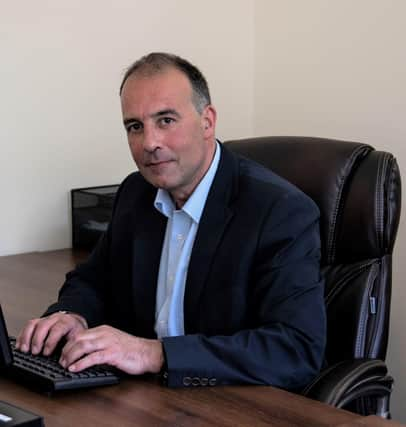Give people the tools to help themselves - Phil Worms


Reports that burnout from the stress of dealing with the normal expectations of the job are being exacerbated by having to deal with the societal fall-out from increasing levels of other people’s stress seems an oddity in many ways, but the reality is that those on the frontline carry their own burdens while dealing with those in wider society.
After a tough few years, the impact of what we’ve been through on the individual is only now becoming clear. We often overlook the simple fact that the people who dedicate their lives to serving, protecting, and caring for us, are human and suffer from, and struggle with, life’s challenges in the same way as we all do.
Advertisement
Hide AdAdvertisement
Hide AdPolice Scotland revealed that officers and staff missed almost 80,000 days of work in the past year because of what were described as psychological disorders. For me, the most telling comment was from Scottish Police Federation chair David Hamilton who said, “…what we need to do is stop problems happening in the first place.”


This gets to the crux of the matter for any good employer looking to provide support for their staff. The work has to start before the problem appears.
The late Archbishop Desmond Tutu succinctly captured what we need to do in his famous quote: “There comes a time where we need to stop pulling people out of the river. We need to go upstream and find out why they’re falling in.”
Earlier this year research by the Mental Health Foundation and London School of Economics, with support from the University of Strathclyde, calculated that mental health problems cost the Scottish economy at least £8.8 billion every year – equivalent to half the total NHS Scotland budget for last year. Almost three quarters of that cost was attributed to lost productivity of those living with mental health conditions. The impact of this is not just on the individual and the employer, it is on the NHS, through visits to GPs and hospital treatment that might have been avoided if more support had been provided earlier.
There’s talk that employee wellbeing is now slipping down the corporate agenda now that we’re out of lockdowns and returning to a degree of normality. Yet we’re facing an unprecedented cost of living crisis and will not truly understand the impact the pandemic has had on society for years to come. It has never been more important to understand that the people who are working every day, whether in an office, remotely, or a mix of both, need every ounce of support we can give them.
The ability to balance a personal and professional life is vital, but it can’t just be the responsibility of employees to figure it out. Employers must step up to the plate to actively support the health and wellbeing needs of the workforce to help people feel valued, respected, included, and give them a sense of purpose. Mental health is not a one-time initiative. Investment in employee health and wellbeing is more than just a programme, it can drive organisational change, culture, and performance.
The Mental Health Foundation report concluded that what is really needed is an approach that is proactive rather than reactive. A prevention-first approach will help to break the cultural stigma surrounding mental health and empower people to take the interventional actions needed to manage their wellbeing at an early stage.
Were Archbishop Tutu still alive he might well have said, ‘Give people the tools they need to help themselves before they get to the river’s edge.’
Phil Worms, CEO of Frog Systems
Comments
Want to join the conversation? Please or to comment on this article.